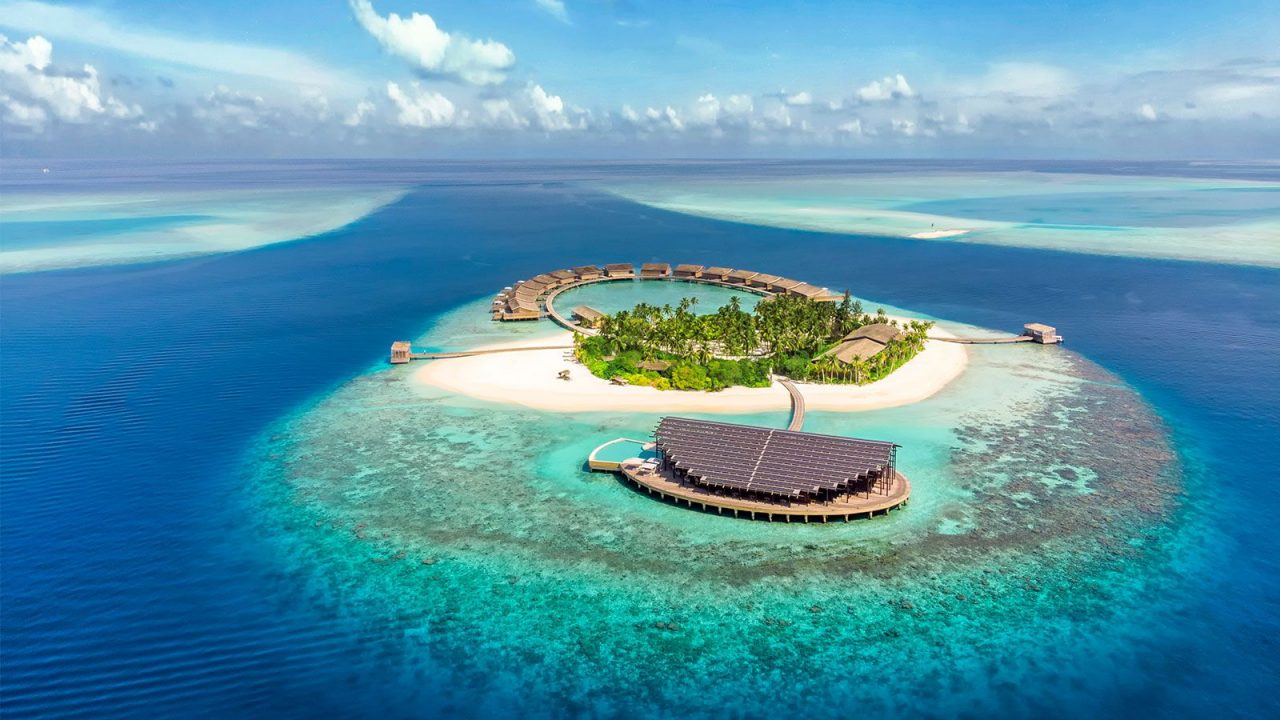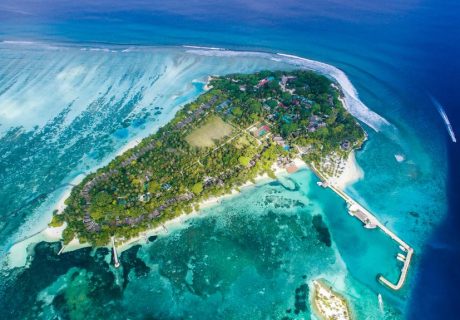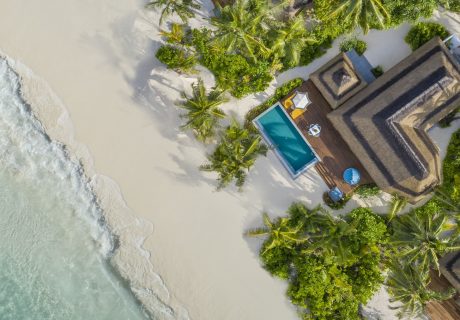It’s no secret that as the world’s lowest-lying country, the 1200 island and atolls that make up the Maldives are under threat from rising sea levels. In light of this, the Government, local communities and many of the country’s hotels and resorts still feel it’s important to do their part and hope to inspire increased global action.
PRESERVING CORAL ECOSYSTEMS
In 2015 and 2016 the coral reefs in the Maldives suffered from the phenomenon of coral bleaching, which happens when ocean temperatures are unusually high, and coral expels the algae living in its tissues, turns white and eventually dies. Sixty to ninety percent of coral in the Maldives has been destroyed by bleaching, but it is still possible for the reefs and their ecosystems to recover. This has been bolstered in certain parts of the Maldives by coral conservation projects. Reefscapers has been involved in coral reef restoration projects in the Maldives since 2005, with its pioneering and ground-breaking coral frame techniques, where corals can grow at a rate of up to 10-15 cm per year. This self-sustaining method of coral propagation is quickly transforming reefs and sandy sea floors into thriving eco-systems, acting as refuge areas for juvenile fish and crustaceans. The coral frames are designed and made on a local island in Baa Atoll. This unique initiative provides employment for several local people and allows them to get involved in marine conservation and tourism activities. Many resorts in the Maldives have also created guest-oriented conservation activities educating visitors on coral rejuvenation, such as snorkelling trails and coral planting.
MARINE CONSERVATION
The Maldives has very strict fishing regulations to maintain fish stocks and preserve the stunning marine life – in fact, reef fishing is strictly prohibited in marine reserves. Unfortunately, the same cannot be said for fishing regulations in some of the neighbouring countries that border the Indian Ocean. As a result, there have been several initiatives implemented in the Maldives to ensure the wellbeing and safety of the island nation’s marine life. For example, many turtle rescue centres have opened across the Maldives in recent years, where marine biologists and vets have access to laboratory, x-ray, ultrasound and surgical facilities to rehabilitate injured turtles.
LOCAL COMMUNITY INITIATIVES
Several community education-programmes have also been created by resorts and non-governmental organisations to educate locals on sustainability. These programmes include a range of activities, including conducting regular beach and reef clean-ups on local islands, developing renewable energy sources, educating locals on practicing responsible fishing, and much more. Maldivians are also advised to carry their own non-biodegradable waste and eco-friendly water bottles, as well as instructed to not touch or remove coral structures while snorkelling or diving.
PHASING OUT SINGLE-USE PLASTICS
In 2019, President Ibrahim Mohamed Solih used his maiden address to the United Nations General Assembly in New York to announce a comprehensive phase-out of single-use plastic items in the Maldives. Mr. Solih said that the most polluting single-use plastic items, such as small water bottles and single-use plastic bags, would be phased out by 2023. In order to tackle the problem, the Government will use a ‘drawdown’ model for reducing plastic waste including implementing a series of ‘smart policies’ aimed at eradicating the most problematic plastics from the country, using policy interventions ranging from outright bans and taxes to new industry standards and guidelines. The policies will be phased-in over time, to ensure minimum disruption to people and business, and making sure alternatives to plastic are readily and cheaply available.
ISLAND RECYCLING PLANTS
The Maldives opened the doors to its first plastics recycling facility in 2018, which was built by non-profit group Parley for the Oceans. The ‘plastics lab’ is located in the nation’s capital Malé and has a capacity of processing 500kg of material every day. Some island resorts also have developed their own recycling plants, with some being able to store up to 360 tonnes of waste, as well as innovatively turning plastic bottles into stylish tote bags.
Source: www.visitmaldives.com



